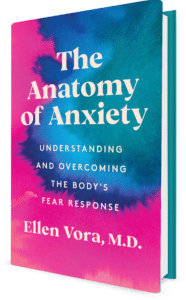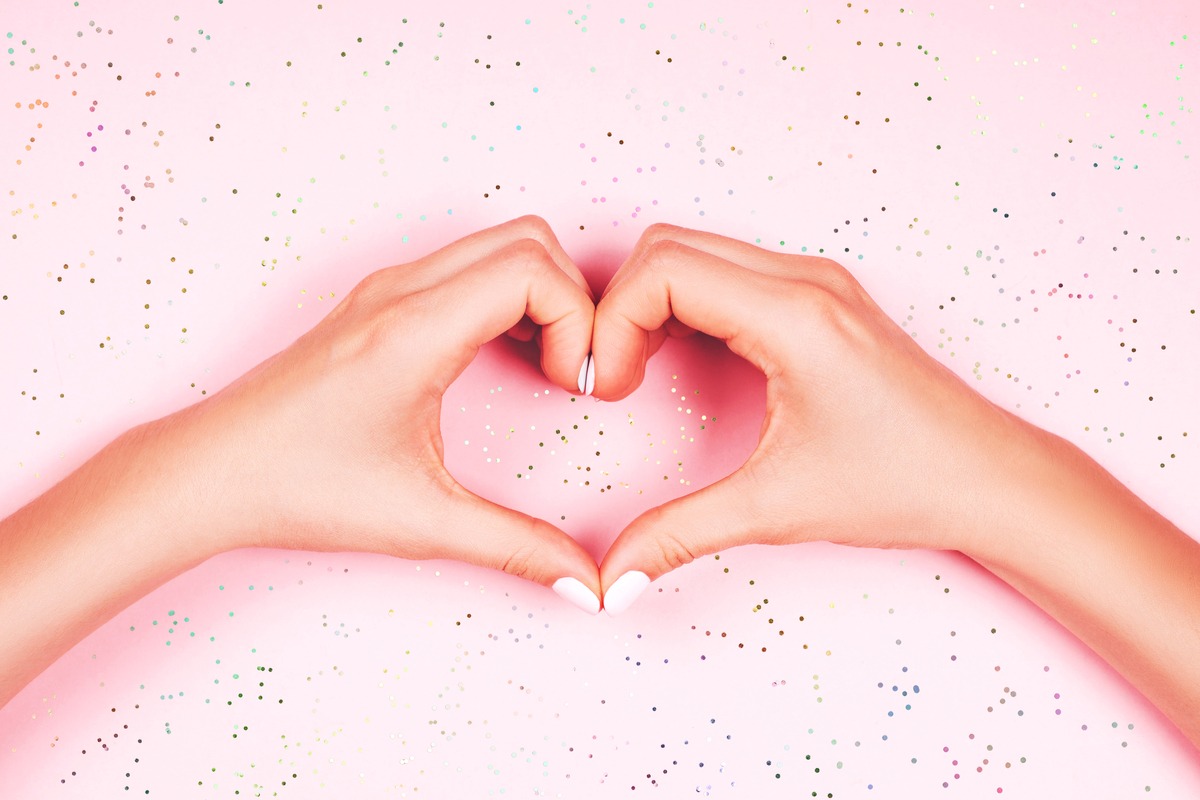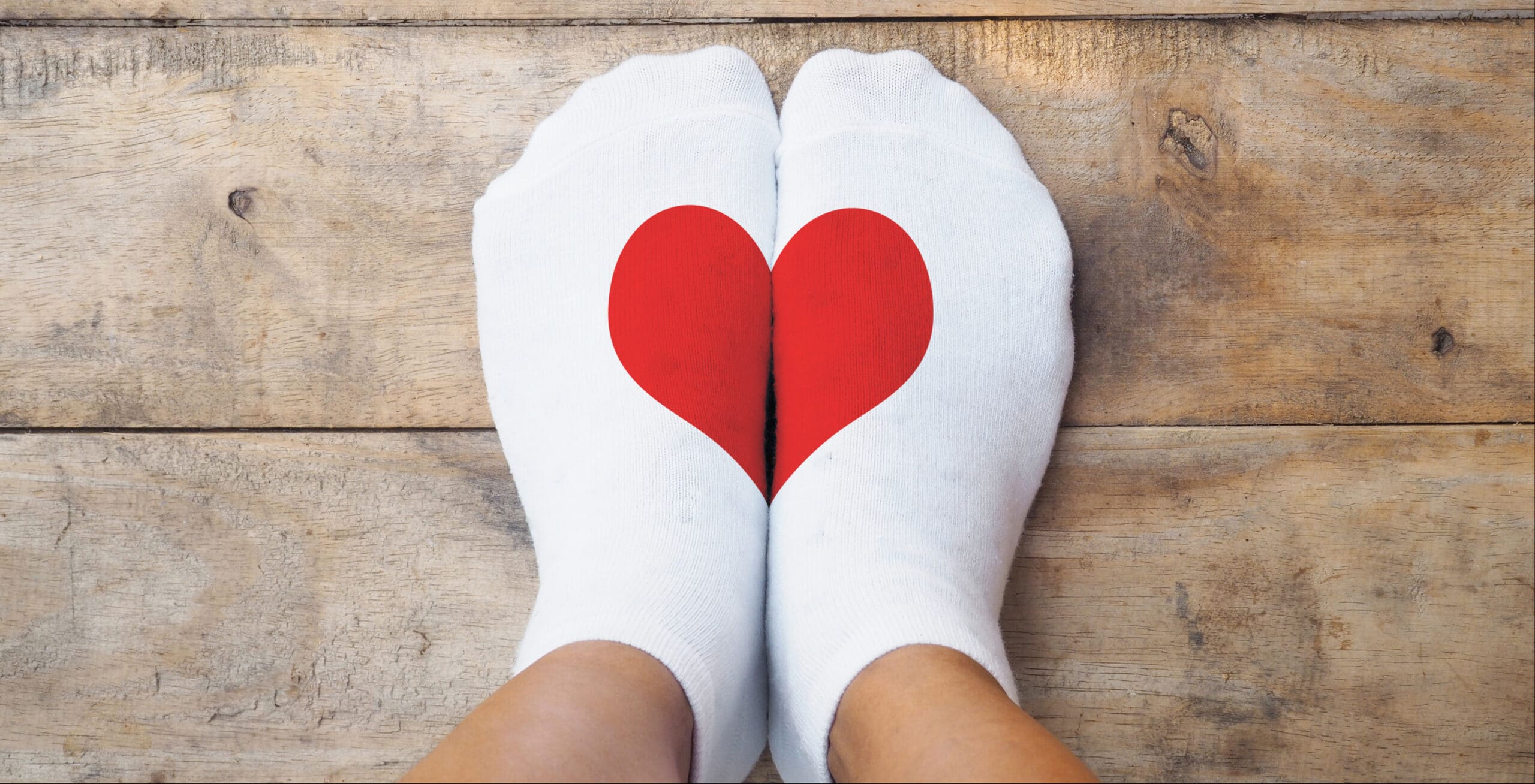Home » Nurture Yourself » Anxiety Is Not All In Your Head, It’s In Your Body
For decades, we have been indoctrinated to believe that mental health is the result of a genetically determined chemical imbalance in the brain. What I have come to understand through years of practice as a board-certified psychiatrist who takes a functional medicine approach to mental health is that issues we’d once considered purely psychiatric in nature can be better understood as the result of a delicate yet highly consequential interplay of body and mind.
I have found that the anxiety that plagues so many of us is increasingly caused by the habits that are now intrinsic to our modern lives, such as chronic sleep deprivation, poor nutrition, and even doom scrolling on social media late into the night.
Though these issues may seem too benign to significantly affect the mind, they are capable of creating a stress response in the body, which prompts the release of hormones such as cortisol and adrenaline—signaling a state of emergency to the brain that can leave us feeling anxious. In other words: mental health is physical health. And anxiety—that hyper-vigilant feeling that escalates swiftly to a sense of catastrophe and doom—is as grounded in the body as it is in the mind.
This is the premise of my recently published book, “The Anatomy of Anxiety: Understanding and Overcoming the Body’s Fear Response.” Read on to learn more about this intricate give and take between body and mind and its impact on anxiety.
“Through relatively straightforward adjustments to our diet and lifestyle, we can avoid unnecessary stress responses and head anxiety off at the pass.”
Altered Brain Chemistry of Anxiety Is Downstream Effect
So while brain chemistry and thought patterns do play a role in anxiety, I would argue that these are actually downstream effects—meaning that frequently our brain chemistry changes as a result of an imbalance in the body.
This is a hopeful message. In understanding that the body is as capable of informing our moods as the brain is, we have come to realize that our anxiety is far more preventable than previously known. That is, through relatively straightforward adjustments to our diet and lifestyle, we can avoid unnecessary stress responses and head anxiety off at the pass.
False Anxiety vs. True Anxiety
I draw a distinction between two types of anxiety—that of false and true anxiety, which is sometimes referred to as an anxiety disorder. This is not a diagnosis, but rather an interpretation that I have found has helped my patients target the source of their anxiety and more swiftly identify the steps that need to be taken to address it.
False anxiety is avoidable anxiety. True anxiety, on the other hand, is purposeful anxiety.
RELATED: The Important Distinction Missing From Conversations About Anxiety
False anxiety occurs when a stress response is triggered by a seemingly benign aspect of modern life, like a blood sugar crash or strong coffee. At these times, our minds are all too happy to swoop in with an explanation.
Our brain says, Maybe I’m anxious because my boss’s aloof email seems to suggest I’m underperforming at work. Our minds are meaning makers. Give us a picture of two dots and a line, and the mind sees a face. Give us a hangover and a cold brew in lieu of breakfast and then we think we’re in trouble at work, our relationship is falling apart, and the world is barreling toward certain destruction. This is because our minds like to tell us stories that explain our physical sensations.
But if we could omnisciently know what was going on under the surface in that moment, we would discover that our mood was sparked by a state of physical imbalance. And much of our worry is just this: our minds trying to justify a stress response in the physical body.
“Our daily habits are the real determinants of much of our anxiety.”
How Diet and Lifestyle Impact Anxiety
Indeed, sleep deprivation, chronic inflammation from eating foods you don’t tolerate, and the comment section in Twitter—these are all, from your body’s perspective, indications that your environment is not safe.
As such, diet and lifestyle factors are critical contributors to our mental health, given that they can trip the body into a stress response. Our genes and thoughts do, of course, have sway over our moods, but our daily habits are the real determinants of much of our anxiety. And intervening at the level of the body, when indeed the source of a person’s anxiety is physical, is often quicker, less expensive, and more effective.
Anxiety is not the final diagnosis, but rather the beginning of our inquiry. That is, anxiety is not what’s wrong with you—it is your body and mind fiercely alerting you to the fact that something else is wrong.
False anxiety is common, it causes immense suffering, and it’s mostly avoidable.
By widening the lens of our understanding to encompass not only the aspects of anxiety that occur in the brain but also those that originate in the body, we can more effectively address our current, and vast, mental health epidemic.

Anxiety Is What We Eat and Drink
We are living in the wake of decades of misleading and contradictory nutrition recommendations. Rather than passing on traditional food wisdom from generation to generation, as was the case with indigenous tribes, American food “wisdom” is a pyramid of serving-size recommendations heavily influenced by industry funding.
I have observed that many of my patients exist somewhere along a spectrum from being addicted to the drug-like foods (gluten, dairy, sugar, and processed foods, engineered to be hyper-palatable), to an orthorexic tendency to obsess about and fear food, declining social invitations in a counter-therapeutic attempt to heal their anxiety by tightly controlling their diets.
RELATED: Orthorexia: When Healthy Eating Goes Too Far
Here are 4 ways our habits around food and beverages impact our anxiety.
Blood sugar
Given that the modern food landscape is built on a foundation of coffee drinks that are secretly milkshakes and rosė all day, many of us are riding the blood sugar roller-coaster—
with our blood sugar swinging up and down throughout the day. And every blood sugar crash generates a stress response, which can feel identical to anxiety.
If you’re familiar with the experience of being “hangry,” then you probably also get hanxious, meaning you get anxious when your blood sugar is low. These blood sugar crashes are a largely avoidable cause of anxiety, and I’ve found adjustments to blood sugar to be among the most immediate and effective salves for anxiety.
Caffeine
To be clear, caffeine is not inherently bad. However, just as with blood sugar crashes, when we ingest caffeine, it promotes the release of cortisol, which revs up the sympathetic (or fight-or-flight) response. It’s as though caffeine makes our nervous system ready for a fight.
Then, if we introduce a stressor—say, a difficult commute or an unsettling work email—we have a more pronounced reaction to that stress. Before you know it, your heart is pounding, your hands are trembling, your body feels shaky, and your mind gets tripped into an overthinking spiral.
I realize that the idea of quitting coffee may be giving you anxiety right about now. Indeed, coffee sometimes feels like the only reliable joy in our day, and our one true friend in the world. But remember that caffeine feels so good, in part, because it’s the antidote to its own withdrawal—we wake up in caffeine withdrawal, and then coffee gets the credit for being the salvation to the very problem it created! Fortunately, there are ways to wean ourselves off caffeine without undue suffering. The key is to go very gradually.
Alcohol
And now, the love affair between booze and anxiety. Humans have long used alcohol to self-medicate for anxiety, and for good reason: it works. In the short run, at least.
As with benzodiazepine medications, such as Xanax, alcohol modulates the activity of the neurotransmitter GABA—the primary inhibitory neurotransmitter in the central nervous system. When we drink, we experience a rush of GABA in our synapses, and this feels good, pleasant, relaxing. … Suddenly the things we were so wound up about no longer feel like such a big deal.
But the body doesn’t really care whether or not we’re relaxed; it just wants us to survive. So, when we’ve had a glass or two of wine, the body becomes aware that if a leopard came around the corner, we’d be too buzzed to care. The brain then goes to great lengths to restore homeostasis—the original state of balance. It does this by reabsorbing GABA and converting it into glutamate, an excitatory neurotransmitter. The resulting feeling is anxiety.
Alcohol chills us out temporarily, but in the end, it leaves us feeling more anxious than we were to begin with. And this effect can accumulate over time, so it’s easy to see how alcohol creates the need for itself, looping us into a vicious cycle.
Micronutrient deficiencies
Finally, many of us are anxious because we’re deficient in critical nutrients. In the U.S., our relationship with food has become so fraught that we have nearly forgotten the connection between food and nourishment. The fact is that the functioning of our brains rests on whether our food provides the necessary raw materials.
When we’re well nourished, we feel good. And when we rely on nutritionally bankrupt, processed foods, we are left overfed but undernourished, and feeling anxious. To get the necessary nutrients from our diet, we need to eat a wide variety of nutrient-dense foods.
(Image: Shutterstock)
Holistic psychiatrist and author of the bestselling book, "The Anatomy of Anxiety".
DISCOVER MORE
RECENT ARTICLES

Want a sneak peek inside the program?
Get FREE access to some of the core training materials that make up our signature program – Become a Nutrition Coach.
Get Access"*" indicates required fields
 Nurture Yourself
Nurture Yourself













































































































































































































































































































































































































































































































































































































































































































































































































































































































































































































































































































































































































































































































































































































































